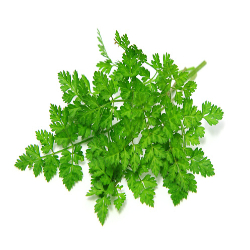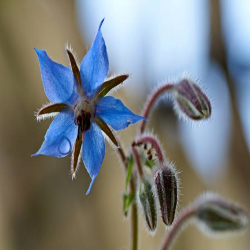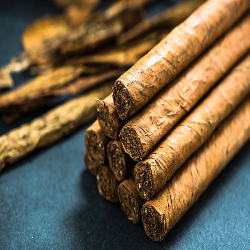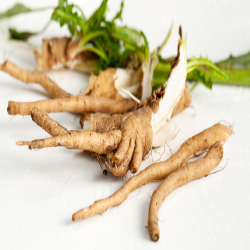Chervil Nutrition facts
Chervil

Chervil is a small, annual herb growing to a height of 15 inches. Its anise-scented lacy, fern-like, light green leaves resemble that of carrot tops. The plant prefers fertile, well-drained soil to flourish. During the early summer, its white bloom appears in tiny umbels as in dill.
Chervil classified into four main varieties:
Garden Chervil- plain or curly.
Root chervil (Chaerophyllum bulbosum)- Cultivated for its tapering, parsnip-like root, which used as a vegetable.
Wild chervil or cow parsley (Anthriscus sylvestris), and
Bur chervil
Similar Food
-
 Basil 23 Cal
Basil 23 Cal -
 Borage 21 Cal
Borage 21 Cal -
 Burdock root 72 Cal
Burdock root 72 Cal -
 Celery 16 Cal
Celery 16 Cal -
 Chicory root 72 Cal
Chicory root 72 Cal
Source of Calorie
237
Calories
-
Carbs49.10 g 61%
-
Protein23.20 g 29%
-
Fat3.90 g 10%
How long to burn off 237 Calories?
*Approximate base minutes for a 25-year-old, 65 kg adult at moderate intensity.
Swimming
37
min
Jogging
32
min
Cycling
32
min
Walking
57
min
| Nutrition Principle | Nutrition Value | Percentage of RDA |
|---|---|---|
| Principle | ||
| Energy | 237 Kcal | 12% |
| Carbohydrates | 49.10 g | 38% |
| Protein | 23.20 g | 41% |
| Total Fat | 3.90 g | 19% |
| Cholesterol | 0 mg | 0% |
| Dietary Fiber | 42.8 g | 107% |
| Vitamins | ||
| Folates | 274 µg | 69% |
| Niacin | 5.4 mg | 34% |
| Pyridoxine | 0.930 mg | 71% |
| Riboflavin | 0.680 mg | 52% |
| Thiamin | 0.380 mg | 32% |
| Vitamin A | 5850 IU | 195% |
| Vitamin C | 50 mg | 83% |
| Electrolytes | ||
| Sodium | 83 mg | 6% |
| Potassium | 4740 mg | 100% |
| Minerals | ||
| Calcium | 1346 mg | 134% |
| Copper | 0.440 mg | 49% |
| Iron | 31.95 mg | 399% |
| Magnesium | 130 mg | 32.5% |
| Manganese | 2.100 mg | 91% |
| Zinc | 8.80 mg | 80% |